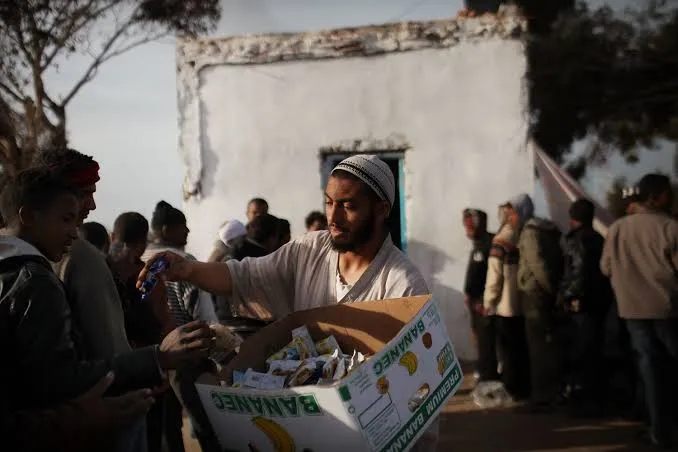Grain or price in Sadaqah al-Fitr? A research review
Sadaqa al-Fitr is also defined as Zakat al-Fitr in the term Sharia, and it is also called Zakat Ramadan, Zakat Soum and Fitra.
Sadaqah al-Fitr is obligatory at the end of fasting Ramadan. Which has two main objectives.
1️⃣ First:
That if a mistake or sin has been committed in the state of fasting, according to humanity, it should be compensated for.
2️⃣ Secondly:
That those who do not have the strength to participate in the joys of this general festival due to their poverty and poverty should be enabled to participate in the Eid day by supporting them through this Sadaqah al-Fitr. Being free from the search for earning and sustenance, you can join the joy of Eid.

Source
Sadaqah al-Fitr is obligatory according to the argument of the Qur'an and Sunnah. Also, its quantity has been stated as one Saa of grain in the light of Sahih Hadith. As it is clearly known from the narrations of Abu Saeed Khudri and Abdullah bin Umar, see the narration:
عن أبي سعيدٍ الخدريِّ قالَ كنّا نخرجُ إذ كانَ فينا رسولُ اللَّهِ ﷺ زَكاةَ الفطرِ عن كلِّ صغيرٍ وَكبيرٍ حرٍّ أو مملوكٍ صاعًا من طعامٍ أو صاعًا من أقطٍ أو صاعًا من شعيرٍ أو صاعًا من تمرٍ أو صاعًا من زبيبٍ فلم نزل نخرجُهُ حتّى قدمَ معاويةُ حاجًّا أو معتمرًا فَكلَّمَ النّاسَ على المنبرِ فَكانَ فيما كلَّمَ بِهِ النّاسَ أن قالَ إنِّي أرى أنَّ مدَّينِ من سمراءِ الشّامِ تعدلُ صاعًا من تمرٍ فأخذَ النّاسُ بذلِك. فقالَ أبو سعيدٍ فأمّا أنا فلاَ أزالُ أخرجُهُ أبدًا ما عشت.
• Al-Albani, Sahih Abi Dawud (1616) • Sahih
• Narrated by Abu Dawood (1616) and Al-Faz, and Muslim (985).
عن سَعِيدٍ الْخُدْرِيَّ رَضِيَ اللَّهُ عَنْهُ، يَقُولُ : كُنَّا نُخْرِجُ زَكَاةَ الْفِطْرِ صَاعًا مِنْ طَعَامٍ، أَوْ صَاعًا مِنْ شَعِيرٍ، أَوْ صَاعًا مِنْ تَمْرٍ، أَوْ صَاعًا مِنْ أَقِطٍ ، أَوْ صَاعًا مِنْ زَبِيبٍ.
(Sahih Bukhari [1506] Sahih Muslim [985])
عَنِ ابْنِ عُمَرَ رَضِيَ اللَّهُ عَنْهُمَا، قَالَ : فَرَضَ رَسُولُ اللَّهِ صَلَّى اللَّهُ عَلَيْهِ وَسَلَّمَ زَكَاةَ الْفِطْرِ صَاعًا مِنْ تَمْرٍ أَوْ صَاعًا مِنْ شَعِيرٍ عَلَى الْعَبْدِ وَالْحُرِّ، وَالذَّكَرِ وَالْأُنْثَى، وَالصَّغِيرِ وَالْكَبِيرِ مِنَ الْمُسْلِمِينَ، وَأَمَرَ بِهَا أَنْ تُؤَدَّى قَبْلَ خُرُوجِ النَّاسِ إِلَى الصَّلَاةِ.
(Bukhari [1503])
The summary of the two hadiths of Abu Saeed Al-Khudri (RA) is that during the time of the Prophet (PBUH), the Companions (RA) used to extract a saa from all kinds of grains, barley, dates, raisins and cheese.
And it is known from the hadith of Abdullah bin Umar that the Prophet (peace and blessings of Allah be upon him) made one Saa of grain, barley and dates obligatory in Zakat al-Fitr.